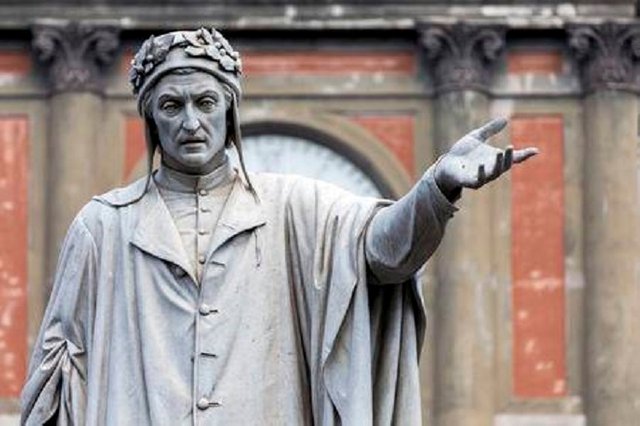Dante Alighieri and his not so famous works /part 5/
The fourth part of "Feast" is written to "guide people to conceive with their own consciousness true nobility." At the beginning, Dante brought the definition of nobility formulated by the German Emperor Frederick II - "ancient wealth and beautiful customs" - which he later refuted. To prove that this wording is wrong, the author of the Feast is forced to compare the authority of the emperor with the philosopher's authority. According to the predominant general opinion, nobility could only be reduced to beautiful customs, as Aristotle even said "what looks beautiful for most people is impossible to be fake.
Thus, the author introduces, as a kind of socio-philosophical retreat (from the text), his extensive reflection on the characteristics and boundaries of the imperial power, the basis of which is sought in that natural law, which requires man to strive for the realization of his own happiness. And since the necessary condition for pursuing such a goal is to live in a just and enjoyable society, the need for a world empire stems from the fact that only such an empire can guarantee the peace and justice of the entire human community. After proving that Imperial rule can be provided to Rome and his people only by the providence of God, by the forthcoming earthly reincarnation of the Son of God, Dante begins to reflect on the power of the Philosopher, having in view of Aristotle, and whether it gives rise to trust and obedience / humility /. After a brief review of the contributions of the ancient philosophical schools / the Academy, Peripatetic School, Stoicism and Epicureanism / Dante concludes that the authority of the Emperor and the power of the Philosopher complement one another, since the first without the second is dangerous to the subjects and the second without the first is too weak (VI chapter). The author regrets that among the commonwealth it was thought that nobility is a family heritage, and is committed to explaining what "true nobility" is. Dante resorted to a parable, according to which a man who had passed through a place whose paths were buried in the snow began to walk through the traces left by a wise man who had passed before him, and so he found himself in the wrong, "twisted in the thorns and ruins". If the wizard has succeeded in finding the right path, he can be called a "brave", ie. a true nobleman, while the second, though the road ahead of him, is the "greatest leeward", ie. born descendant (Chapter VII).
Thus, Dante challenges the comparison of nobility with the "wealth accumulated in ancient times", firstly, because such wealth neither confesses nor takes nobility, since it may be accumulated in an unfair manner or be the result of indescribable greed (X-XIII chapter /. Secondly, the period of time elapsed since antiquity has hardly been sufficient for the appearance of truly noble descendants, as miserable people think, since a worthy son is born very rarely from an unworthy father. The conclusions of these arguments are two: either nobility does not exist, or / contrary to philosophy and religion / people are not created by one Creator (XIV - XV). After presenting the nobility as "the perfection of man's own nature in everything", as inherent not only for the people but also for all living beings virtue, Dante returns to the main theme of the treatise (XVI chapter). By explaining Aristotle's example in his "Ethics", the 11 moral virtues (Power, Moderation, Generosity, Majesty, Magnificence, Freedom, Humility, Kindness, Truth, Eutrapelia, Justice) affirms the superiority of the intellectual / spiritual / virtues above them , i.e. of the contemplative life over the actual (XVII - XIX chapter), Dante defines human nobility as an individual gift, not as a descendant dowry, as "the seed of happiness sown by God in the righteous soul". The imposition of this "virtue" in the human soul by God gives the author an opportunity to trace the process of the birth of the soul into the seed, as well as to speak of the generous gifts by which the Holy Spirit spreads the righteous soul who is only inclined to accept (Chapter XXI). After defining nobility as "the seed of happiness," Dante discerns two forms of happiness that are related to the practical actions and to the operations of the rationality that constitute the rational activity (Chapter XXII).

upvote and follow you
😊
You got a 14.17% upvote from @postpromoter courtesy of @godflesh!
Want to promote your posts too? Check out the Steem Bot Tracker website for more info. If you would like to support the development of @postpromoter and the bot tracker please vote for @yabapmatt for witness!
nice book content 👍🏻
You have recieved a free upvote from minnowpond, Send 0.1 -> 10 SBD with your post url as the memo to recieve an upvote from up to 100 accounts!